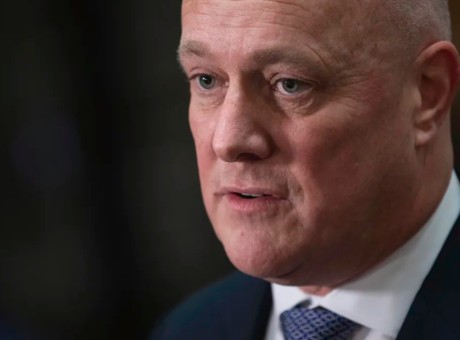Foreign nurses exodus a blow for Dunedin

As Dunedin faces the downgrading of its new hospital, overseas-qualified nurses wanting to work in the city are now being sent home “like disposable cogs”.
As many as 12,000 overseas qualified nurses are thought to be in New Zealand looking for work after completing the Competency Assessment Program needed for them to register as New Zealand nurses.
However, many are now unable to get work because of preference being given to newly-trained Kiwi nurses, leaving them with expiring visas. That has led to the embassies of both the Philippines and India issuing notices to nurses not to travel to New Zealand without a confirmed job offer.
The advisory from the Philippines Embassy was posted to a Dunedin-focused Facebook page and states, “there is currently a lack of employment opportunities for foreign nurses or internationally Qualified Nurses in New Zealand.”
Dunedin City Councillor Christine Carey said it was an issue she was hearing “time and time again” with overseas nurses and students unable to stay in the city due to changes in immigration settings.
She urged the Government to listen.
“Immigration settings are hurting our city."
Crux Dunedin spoke to the organiser of a petition to keep a group Internationally Qualified Nurses (IQNs) from the Philippines in the country.
He said the situation meant if 500 IQNs applied for one job, once that job was given to a newly-trained New Zealand nurse, all 500 IQNs would have to go back and search again.
“It’s a Catch 22,” the petition organiser said.
Green Party immigration spokesperson Ricardo Menendez March said the issue impacted Dunedin.
"Treating our migrant healthcare workers as disposable cogs in a broken machine does a disservice to communities ready to support the wellbeing of Aotearoa.
“Dunedin is at the heart of our healthcare crisis, not only facing a shortage of funding for critical health infrastructure but the workforce needed to help it run. Enabling migrant health workers to better participate in the workforce will give breathing room for us to develop and grow our domestic workforce.
“Internationally qualified nurses need forward planning and certainty, so that they can enter the workforce and support our struggling healthcare system. We need a Government committed to addressing workforce shortages as well as issues like pay and working conditions.
“We have written to (Immigration Minister) Erica Stanford hoping to address this issue and will continue supporting migrant workers’ fight for an immigration system that treats people with respect and dignity.
“We wrote to Erica Stanford asking for her to grant a General Open Work Visa to Internationally Qualified Nurses (IQN) who have completed their Competency Assessment Program (CAP).”
A spokesperson for Health Minister Shane Reti’s office says the Government is “very appreciative” of the contribution Internationally Qualified Nurses have made and continue to make.
“This was particularly the case during the pandemic. However, as workforce needs change, so will international recruitment requirements.
“Our current priority is placing our NZ trained graduate nurses into roles, particularly in our hospitals. Some have also been placed into roles in the wider sector, such as primary and community care, aged residential care, private providers, or public health.
“Minister Reti recently corresponded with the Ambassador of the Philippines acknowledging the contribution of IQNs from that country, and advising that that any next steps would be to meet with officials from Health NZ and the Ministry.”
Labour Party Health spokesperson Dr Ayesha Verrall said additional nurses and health funding are what's needed so we should be supporting internationally trained nurses to join our health workforce here.
"Labour's plan for financial year 2023-2024 led to hiring more than 4000 staff and was upfront about where further training and investment was needed.
"Now there's a hiring freeze - we can see that in the financial documents Te Whatu Ora released last week.
"The Government has manufactured a financial crisis to justify stripping back the health system. The ridiculous claim by Health Commissioner Lester Levy that we have too many nurses for the budget reveals how little the nursing workforce is valued by this Government.
"They've spun a story about back office jobs to justify making $2 billion in cuts and reduced services in the regions. Downgrading the Dunedin hospital rebuild and other hospitals around the country is a cut to frontline services which they said they wouldn't do, and making it more difficult for overseas nurses to work here makes a mockery of their claims that they're all about the frontline."

























